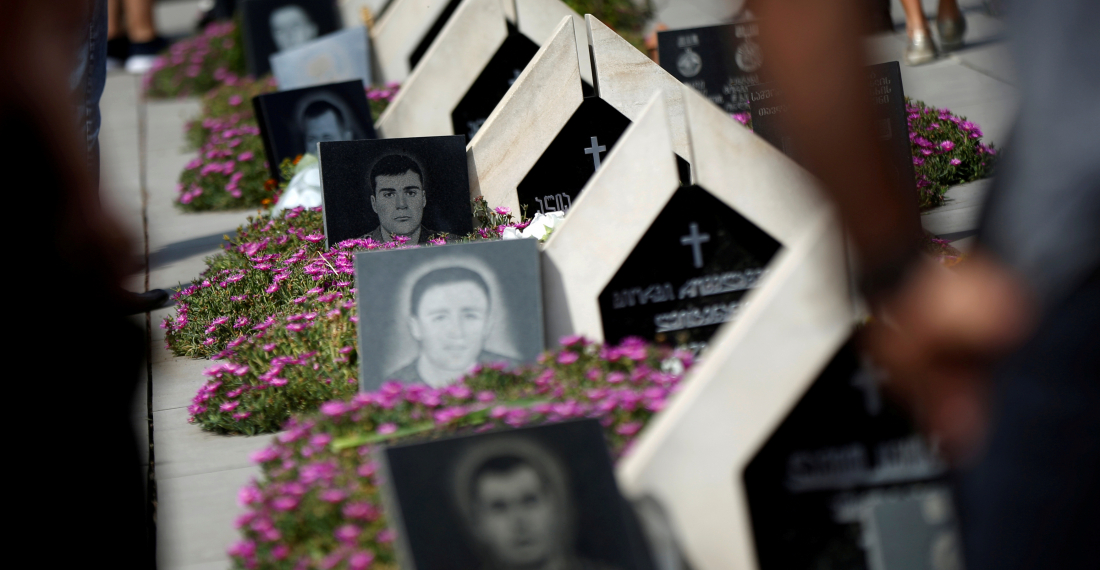Georgia on Sunday marked the 14th anniversary of the start of the 2008 Georgia-Russia War which lasted five days.
2,232 Georgians were killed or injured during the fighting, of whom 1,045 persons were military personnel.
After the August war, Russia recognized the independence of two regions of Georgia - Abkhazia and South Ossetia as independent states. Only a handful of other countries followed, and most nations continue to strongly support Georgia's territorial integrity.
The European Union, the United States, the United Kingdom and a number of other countries issued statements on the occasion of the anniversary, once more reiterating their support for Georgia's territorial integrity.
EU High Representative, Josep Borrell wrote on his twitter page
14 years since the August 2008 Russia-Georgia war, the EU condemns Russia’s continued illegal military presence in Georgia’s territories of Abkhazia and South Ossetia.
— Josep Borrell Fontelles (@JosepBorrellF) August 7, 2022
EU stands by Georgia, its independence, sovereignty and territorial integrity, and supports conflict resolution
In a statement, the Georgian Foreign Ministry called on the Russian Federation "to cease illegal and provocative steps against Georgia, to respect the sovereignty and territorial integrity of Georgia, to fulfil the obligations under the EU-mediated 12 August 2008 Ceasefire Agreement, to withdraw its forces from the territory of Georgia and to reverse the illegal decision on recognition of the so-called independence of the occupied regions."
"On the 14th anniversary of the occupation, Russia is not complying with the EU-brokered ceasefire agreement of August 12, 2008, and is expanding its illegal control over the occupied regions. By erecting barbed wire and other barriers on the occupation line, by illegal arrests and kidnappings, by gross violation of human rights, by ethnic discrimination of Georgians, it attacks the security, human rights and humanitarian environment on the ground, thereby trying, among other things, to isolate people living in the occupied territories from the rest of Georgia and the international community. .
The gross violation of fundamental human rights, ethnic discrimination and the violation of the right of hundreds of thousands of internally displaced persons and refugees to return to their homes in Abkhazia and Tskhinvali regions of Georgia continue to be a heavy humanitarian burden of Russia's illegal occupation. Encouraging impunity in the cases of endangering the lives of Davit Basharui, Giga Othozoria, Archil Tatunashvili increases the danger of violence on ethnic grounds.
Against this background, the unrestricted access of international human rights protection organizations and deployment of international security mechanisms on the ground, as well as the entry of the EU monitoring mission into the regions of Abkhazia and Tskhinvali, despite the mandate of the mission, which is unfortunately hindered by the occupying power, become even more critical.
The statement added:
"Georgia continues to implement the policy of peaceful resolution of the Russian-Georgian conflict and is eager to make possible the integration and peaceful development of the country, the restoration of trust between the societies divided by the occupation line, and the construction of a common European future by using diplomatic and legal instruments, in close cooperation with international partners.
Georgia is grateful for the unwavering support of the international community for the country's sovereignty and territorial integrity, and highly appreciates the contribution of international partners in the process of peaceful resolution of the Russia-Georgia conflict. The mentioned support acquires special importance today, when Russia, with its military aggression against Ukraine, continues to violate the principles of international law and undermines the security of Europe."
The Georgian statement concluded with an appeal to the international community to direct a consolidated effort towards the de-occupation of Georgian territories and the return of internally displaced persons and refugees to their homes, and to take effective steps to ensure peace and security in Georgia and the region as a whole.







